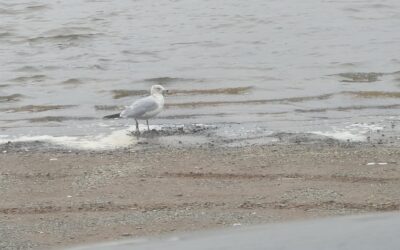Through contemplative prayer and simplicity, seventeenth century mystic Madame Jeanne Guyon guides her readers toward the heart of God. Born in France on April 13, 1648, Jeanne Guyon became both a beloved and a controversial, persecuted woman, primarily because of her teachings on quietism and her association with a person out of favor with the Catholic church. Her autobiography portrays the depths of her self-denial, which leads her to deep contentment through her understanding of the love of God. The first few chapters showcase her resilient will to live despite severe illnesses, along with mistreatment at the convent where she stayed for her formative years.[1] During these formative years her growing adoration for God became a passion. Her time in the convents acquainted her with personal religious experiences.
In 1668, through a previously made arrangement, Jeanne married a wealthy but sickly man, twenty-two years older than she. She found the ability to stay faithful to her husband by finding depth in her relationship with God. Her autobiography recounts a moving experience with God as she shares her pain:
Thy goodness, surpassing all my vileness and infidelities, and in proportion to my wretchedness, granted in me a moment, what all my own efforts could never procure. Beholding me rowing with laborious toil, the breath of Thy Divine operations turned in my favor, and carried me full sail over this sea of affliction.[2]
Hagiography of Jeanne Guyon
After this experience she began a relentless pursuit of Christian Spirituality, and as she shared what she learned, her spiritual direction became widely sought. Her husband had died in 1676, and this allowed her to focus fully on her passion. Her work became popular with Protestants, as it was lay-friendly in the teaching of spiritual disciplines. Perhaps because of this, she became suspect by Catholic leaders. In 1688, the government imprisoned her in a convent, accusing her of heretical opinion and disapproving of her communication with Miguel de Molinos.[3] Molinos, a Spanish theologian and mystic, had been condemned by the papal bull Coelestis Pastor in the previous year.[4]
Quietism became the subject of an active dispute after the Archbishop of Cambrai, Fénelon, began teaching this discipline he had learned from Madame Guyon. By 1694, Fénelon’s writings, influenced by Guyon’s teachings on quietism, created such controversy that a conference met at Issy, resulting in Guyon’s imprisonment. Her opponents preferred a more intellectual approach to theology. It also seemed improper to them that a laywoman would teach a monk, rather than monks teach her.[5] This resulted in yet another imprisonment in 1695, accompanied by the ban of her book, A Short and Easy Method of Prayer. Her belief that she held apostolic authority also created great suspicion.[6]
In her Commentary on the Song of Songs she portrays violence as she details the union of the “annihilated bride” with her “bloody bridegroom” of death and argues that full enjoyment of God in this life can only occur after a complete emptying of self.[7] Her theology gave her the spiritual framework and fortitude to stand against her contemporary political and ecclesial structures. It is through this theology that she experienced Matthew 10:39, where Jesus teaches that the one who loses their life finds it.
Historical-Critical Reflection
Though she suffered abuse from the Catholic church who found some of her works heretical, she was also esteemed for her resilience and positive influence. Her direction continued to influence church leaders inside and outside the Catholic church. She influenced John Wesley, and her Autobiography became part of Wesley’s famed Christian Library.[8] Her Christocentric focus along with her call to abandonment of self to the Lord, prayer of the heart, inward holiness as the thermostat to outward living, and simplicity resulted in appreciation and admiration for Madame Guyon throughout Christendom.
After her prison release, she continued writing and corresponding with other mystics throughout Europe. Her following came from both Catholics and Protestants. She wrote a Bible commentary, which influenced German Pietism. Her writings were widely translated and anthologized, particularly by the Quakers.[9]
Personal Engagement
I was surprised at the extent that a sixteenth century mystic spoke to my soul. First, I was inspired by her courage and perseverance to stand up to criticism and faithfully endure unjust treatment, without a hint of bitterness. As I read A Short and Easy Method of Prayer, I was reminded of my temptation to read the Scriptures for information, for something to impart to others, or for research. As she expounds on the importance of solitude and meditation her words cautioned me:
When, by an act of lively faith, you are placed in the Presence of God, recollect some truth wherein there is substance and food; pause gently and sweetly thereon, not to employ the reason, but merely to calm and fix the mind: for you must observe, that your principal exercise should ever be the Presence of God; your subject, therefore, should rather sere to stay the mind, than exercise the understanding.[10]
As I read Madame Guyon’s instructions for emptying one’s heart to be filled with God’s Presence, I could almost hear Henri Nouwen’s words on “solitude connecting to solitude” in his address on “Finding a Sacred Center.”[11] I could also feel the strong connection between Jeanne Guyon’s place of love and acceptance from God (being beloved) and Henri’s sermon on “The Beloved.” Her influence concerning quietness, emptying oneself, and being beloved are refected in Henri’s teachings.
Perhaps the metaphor from Madame Guyon that most resonated with me was her description of sailing vs. rowing:
…laying one’s self before God in the prayer of simple exposition, that we may be acted upon by His Spirit; to hold the rudder is to restrain our hearts from wandering from the true course, recalling it gently, and guiding it steadily to the dictates of the Blessed Spirit, which gradually gain possession and dominion of the heart, just as the wind by degrees fills the sails and impels the vessels…were they even now to attempt using the oar they would not only fatigue themselves, but retard the vessel by their ill-timed labours.[12]
How easy it is for me to grab the oars. How difficult it seems to empty myself, to quiet myself to be acted upon by His Spirit. She continues to challenge my heart with the reminder that self-sufficiency and activity are the source of wandering from God.[13] Her challenge to pastors and teachers resonates as she teaches that leaders too quickly focus on the exterior matters rather than the captivated heart. I pray my heart is always captivated by the Presence of God as I teach others to let their hearts be captivated by His love.
Madame Guyon left this earth in 1717, but her life and words live on. During her lifetime she also founded hospitals, successfully argued legal cases, and sought human rights. Her writings on spiritual topics would be read by hundreds of thousands.[14]Her focus on solitude, contemplation, emptying oneself to find the joy of God, and understanding our identity as God’s beloved was enough for her throughout her trials. May it be enough for us all.
Bibliography
Brooke, Thomas Digby. The Exemplary Life of the Pious Lady Guion, translated from her own account. Philadelphia: printed by Joseph Crukshank, 1804.
Guyon, Madame Jean. A Short and Easy Method of Prayer. Grand Rapids, MI: Christian Classics Ethereal Library. https://www.ccel.org/ccel/g/guyon/prayer/cache/prayer.pdf.
James, Rev. Nancy C., PhD. The Complete Madame Guyon. Brewster, MA: Paraclete Press, 2011.
Lee, Bo Karen, Sacrifice and Delight in the Mystical Theologies of Anna Maria van Schurman and Madame Jeanne Guyon. Notre Dame, IN: Notre Dame Press, 2014.
Mourad, Ronney and Guenin-Lelle, Dianne. “Jeanne-Marie Bouvier de La Motte Guyon”. Encyclopedia Britannica, July 13, 2021. https://www.britannica.com/biography/Jeanne-Marie-Bouvier-de-La-Motte-Guyon.
The Columbia Encyclopedia. © Columbia University Press, 2018.
Tyson, John R. ed. Invitation to Christian Spirituality. New York: Oxford University Press, 1999.
[1] Thomas Digby, Brooke, The Exemplary Life of the Pious Lady Guion, translated from her own account (Philadelphia: printed by Joseph Crukshank, 1804).
[2] Madame Guyon, Autobiography, Pt I, 312 (Christian Classics Ethereal Library, http://ccel.wheaton.edu as cited in John R Tyson, Invitation to Christian Spirituality (NY: Oxford University Press, 1999), 306.
[3] The Columbia Encyclopedia, © Columbia University Press 2018.
[4] Tyson, Invitation, 306.
[5] Rev. Nancy C. James, PhD, ed., translator, The Complete Madame Guyon (Brewster, MA: Paraclete Press, x.
[6] Mourad, Ronney and Guenin-Lelle, Dianne. “Jeanne-Marie Bouvier de La Motte Guyon”. Encyclopedia Britannica, 13 Jul. 2021, https://www.britannica.com/biography/Jeanne-Marie-Bouvier-de-La-Motte-Guyon. Accessed 9 February 2022.
[7] Bo Karen Lee, Sacrifice and Delight in the Mystical Theologies of Anna Maria van Schurman and Madame Jeanne Guyon (Notre Dame, IN: Notre Dame Press, 2014), 57-58.
[8] Tyson, Invitation, 306.
[9] Mourad, “Encyclopedia.”
[10] Madame Guyon, A Short and Easy Method of Prayer (Grand Rapids, MI: Christian Classics Ethereal Library, https://www.ccel.org/ccel/g/guyon/prayer/cache/prayer.pdf, accessed Feb 9, 2022.
[11] https://moodle.nts.edu/course/view.php?id=3074.
[12] Guyon, A Short and Easy Method, 41.
[13] Guyon, A Short and Easy Method, 45.
[14] James, The Complete Madame, ix.



0 Comments